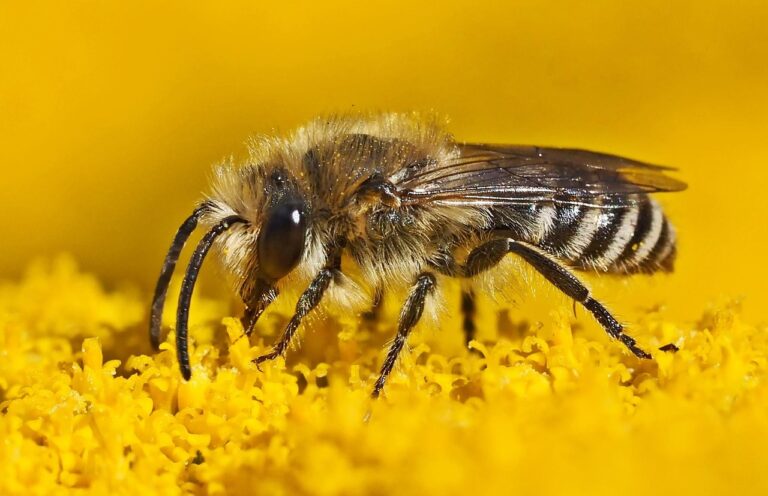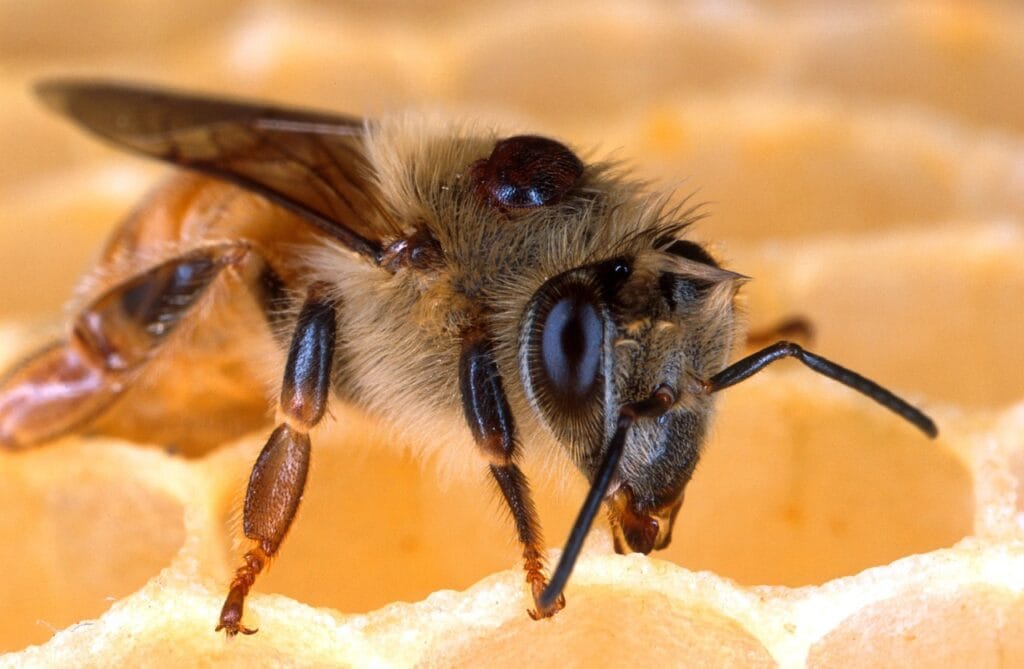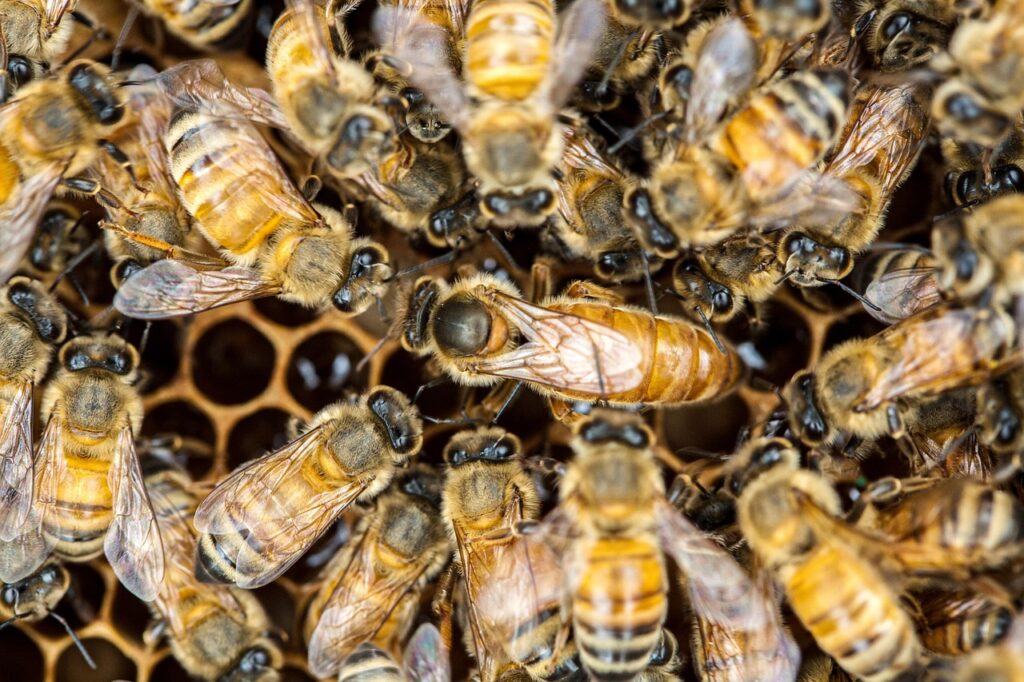Here’s what nutrients foragers need to collect to maintain peek colony health
Forager bees collect several critical nutrients essential for colony health, primarily via nectar, pollen, water, and propolis.
The main nutrients and their roles are:
• Proteins/Amino acids: Collected mainly from pollen, these are vital for brood development, growth, and the production of royal jelly by nurse bees. Essential amino acid deficiencies impact muscle development and brood food production[1][2].
• Lipids/Fatty acids: Also sourced from pollen, particularly important are essential fatty acids (such as omega-3 and omega-6), which support bee health, cognitive function, and longevity[1][3][2].
• Carbohydrates (sugars): Nectar provides energy-rich sugars (mainly sucrose, glucose, and fructose) fundamental for bee metabolism, hive activities, and honey production[3].
• Vitamins and minerals: Pollen contains vitamins (B complex, C, D, E, K) and minerals (potassium, sodium, magnesium, calcium, phosphorus, iron, zinc), which are needed for physiological functions and immune system support[3][4].
• Phytosterols: Particularly 24-methylenecholesterol, are required for molting and hormone synthesis. They are only available from pollen or supplements and are critical for brood production and longevity[4][3].
• Phytochemicals (secondary metabolites): Compounds such as phenolic acids (like p-coumaric acid), flavonols (quercetin, kaempferol), alkaloids, and terpenoids, frequently present in both nectar and pollen, strengthen detoxification pathways and immune responses[5][3][4].
• Salts and trace elements: Essential for osmoregulation and metabolic processes. Foragers sometimes prefer “dirty” or mineralized water sources to supplement salts like potassium and small amounts of sodium—although excessive sodium or calcium becomes toxic[4].
Each nutrient supports a distinct aspect of colony function, including larval development, immune defense, energy provision, and winter survival.
Critically, the diversity and balance of these nutrients—especially amino acids, fatty acids, vitamins, minerals, and phytochemicals—are necessary for optimal health across the colony[5][3][2][4].
The foraging of a variety of floral sources ensures that bee colonies receive a rich and balanced supply of these essential nutrients.
⁂
1. https://www.wur.nl/en/article/why-balanced-nutrition-is-important-for-bees-and-their-colony.htm
2. https://www.frontiersin.org/journals/insect-science/articles/10.3389/finsc.2022.894482/full
3. https://utia.tennessee.edu/publications/wp-content/uploads/sites/269/2023/10/W1152.pdf
4. https://honeybeehealthcoalition.org/wp-content/uploads/2024/01/HBHC-Honey-Bee-Nutrition-Guide-Supplementary-Feeding-Guide-2024.pdf
5. https://pmc.ncbi.nlm.nih.gov/articles/PMC11217361/



